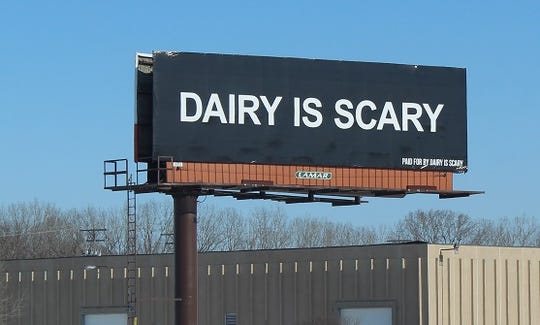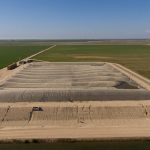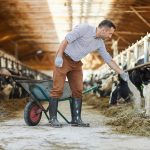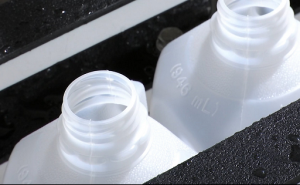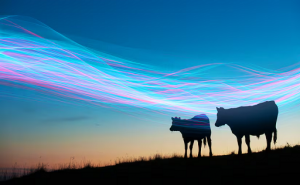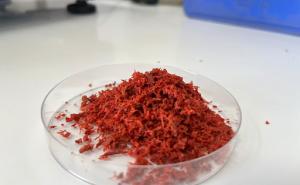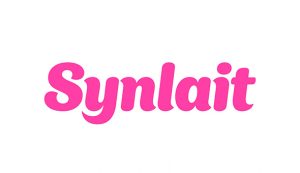
“Dairy is Scary,” a billboard at Ashland and Lombardi avenues announces in big, white capital letters on a black background. There’s no further explanation.
The message is part of a campaign, in the United States and Canada, to draw attention to what the principals say are issues of animal cruelty, health dangers and other “scary” elements of the dairy industry.
Billboards have gone up as far away as Los Angeles, Atlanta and eastern Canada. The Atlanta billboards were posted before the 2019 Super Bowl.
“The louder this message gets, the quieter the dairy farmers get,” Erin Janus, a Canadian woman credited with sparking the movement with a five-minute anti-dairy YouTube video, said in a brief telephone interview Friday. The video — which includes some language and images that aren’t suitable for children — was released in 2015.
The Ashland Avenue billboard appeared around the first of the year.
The campaign has dairy industry opponents and proponents accusing each other of cowardice.
Janus says she has “been trying to have a public discussion with a dairy farmer for a long time, but they seem afraid to talk.”
Jamie Mara, speaking for the Bellevue-based Dairy Business Association and Edge Dairy Farmer Cooperative, said the anti-dairy claims are nonsense.
“We are aware of the billboard but haven’t paid much attention to it,” he said in an email. “I would imagine a vegan group or other organization that’s against animal agriculture is behind the gimmick but might be too ashamed to say so. Regardless, I doubt the message is going to move the needle in a state where we love our farmers, guzzle our milk and wear cheese wedges on our heads.”
Janus’ video had been on the web for several years, but began spreading widely when 60 anti-dairy billboards went up in Los Angeles in June 2018. June is “Dairy Month” in the U.S.
Not surprisingly, the message has gotten attention — much of it negative — in Wisconsin, where milk and cheese production are pillars of the state’s economy. The state Legislature decreed more than 75 years ago that the state’s license plates would bear the phrase “America’s Dairyland.”
Dairy farmer Josh Salentine said he was shocked when he learned about the billboard.
Salentine is the fourth generation of his family to operate Salentine’s Homestead Dairy, a Luxemburg farm his great-grandfather launched 100 years ago. His farm, which milks 290 cows, will host Kewaunee County’s Breakfast on the Farm event this June.
“Milk is one of the best and safest food products on the market,” Salentine said Friday. “If you have questions about the nutritional values, talk to your doctor. If you have them about how animals are treated, talk to your local farmer. But don’t spread misinformation about farms or farmers.”
The “Dairy is Scary” campaign has branched out to include animal-welfare organizations like a California-based group called In Defense of Animals. The group was inspired by the message behind the billboards, spokeswoman Fleur Dawes said, and decided to partner with Janus.
“Dairy is scary for so many reasons,” she said, citing animal-welfare concerns, and manure runoff that can create problems in rivers and lakes. “Once they watch Erin’s video, many people will want to move away from dairy.”
She said her organization urges people to consume almond milk and other substitutes rather than milk from cows.
Actor Joaquin Phoenix also prompted outrage from Wisconsin farmers this week after he used his Oscars acceptance speech to rip the dairy industry. His speech prompted the National Milk Producers Federation to weigh in.
“We have a free country, with freedom of expression, but we do wish that Joaquin Phoenix would talk with us, rather than at us, because if he did he would learn a lot about the commitment that dairy farmers have for animal welfare,” federation spokesman Alan Bjerga said.
“This isn’t the first time he has made remarks like this,” he added, “but it gets more prominence because it was in an Oscars speech.”
